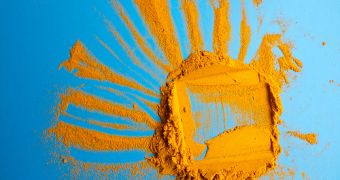Saint Louis University researchers carried out a study exploring the healing properties of curcumin, a chemical from Turmeric (Curcuma), and found that it is rather promising in preventing or treating liver damage caused by fatty liver disease.
For those who like curry, this is a good news, because curcumin is what gives it its zest and turmeric, the plant which makes it, has been used for thousands of years by the Chinese for making traditional medicines.
Anping Chen, PhD, corresponding author and director of research in the pathology department of Saint Louis University, has experimented the effects of curcumin on a fatty liver disease that is continuously rising, called non-alcoholic steatohepatitis (NASH).
NASH affects 3%-4% of US adults, it is usually linked to weight gain and obesity and it can lead to a type of liver damage called liver fibrosis, to cirrhosis, liver cancer and even death.
Chen said that his “laboratory studies the molecular mechanism of liver fibrosis and is searching for natural ways to prevent and treat this liver damage.
“While research in an animal model and human clinical trials are needed, our study suggests that curcumin may be an effective therapy to treat and prevent liver fibrosis, which is associated with non-alcoholic steatohepatitis (NASH).”
Obese patients with type 2 diabetes (which can contribute to liver fibrosis related to NASH) often have high levels of blood leptin, glucose and insulin.
“Leptin plays a critical role in the development of liver fibrosis,” Chen said, so he focused his work on testing the effects of curcumin on the role of high levels of leptin, in a case of liver fibrosis in vitro, or in a controlled lab setting.
He discovered that high levels of leptin activate the hepatic stellate cells that cause the production of too much collagen protein, which is actually a main feature of liver fibrosis.
Among other things, the researchers found that curcumin neutralized the effects of leptin on the activation of hepatic stellate cells, and this stopped the development of liver damage.

 14 DAY TRIAL //
14 DAY TRIAL //